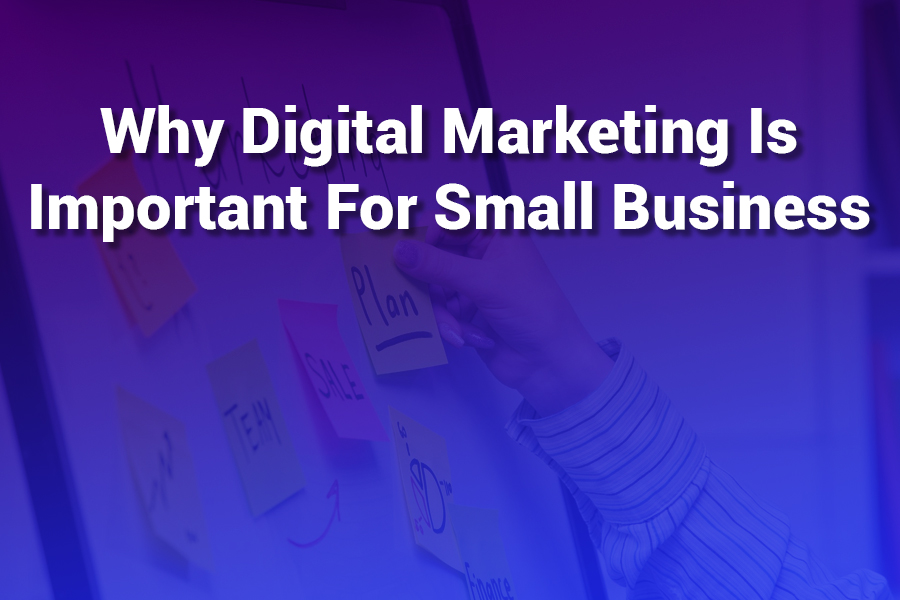- Home
- Our Services
- PedroVazPaulo Coaching
- PedroVazPaulo Executive Coaching
- PedroVazPaulo Marketing Consulting
- PedroVazPaulo Entrepreneur
- PedroVazPaulo Real Estate Investment
- Pedro Paulo Business Consultant
- PedroVazPaulo Wealth Investment
- PedroVazPaulo Business Consultant
- PedroVazPaulo Operations Consulting
- PedroVazPaulo Strategy Consulting
- Blog
- About
- Contact

In today’s hyper-connected world, small businesses can no longer rely solely on traditional marketing methods to survive. From local bakeries to independent consultants, every business needs a solid digital presence to stay relevant, reach new customers, and build lasting relationships.
So, why digital marketing is important for small business? Because it levels the playing field — allowing smaller companies to compete with larger brands, reach a global audience, and convert clicks into loyal customers without breaking the bank.
What Is Digital Marketing and How Does It Work?
Digital marketing refers to any form of marketing that exists online — including websites, social media, search engines, email, and mobile apps. It focuses on creating meaningful connections with your target audience through platforms they already use.
Key components of digital marketing include:
- Search Engine Optimization (SEO)
- Pay-Per-Click Advertising (PPC)
- Social Media Marketing (SMM)
- Email Marketing
- Content Marketing
- Influencer & Affiliate Marketing
- Mobile Marketing
For small businesses, digital marketing offers a powerful toolbox to attract, engage, and retain customers at every stage of their journey.
1. Why Digital Marketing Is Important for Small Business: 10 Key Reasons
Let’s dive into why digital marketing is important for small business — not just in theory, but with practical benefits that make a real difference.
1.1 Increased Visibility
Most consumers start their buying journey online. With a strong digital marketing strategy, your business can be found on Google, social platforms, and review sites — exactly where your customers are searching.
1.2 Cost-Effective Compared to Traditional Advertising
Print ads, billboards, and TV spots can be expensive. Digital marketing lets you reach thousands of potential customers at a fraction of the cost — and track every dollar spent.
1.3 Builds Brand Awareness
Digital platforms offer endless opportunities to showcase your brand’s personality, values, and story. Through content, visuals, and engagement, small businesses can build a recognizable brand that resonates with audiences.
1.4 Allows for Targeted Marketing
With tools like Google Ads and Facebook Ads, you can laser-target your ideal customer based on demographics, interests, behavior, and location. This reduces waste and increases conversions.
1.5 Helps Compete with Larger Brands
Digital marketing levels the playing field. Even with a smaller budget, a smart strategy can help you outrank big-name competitors in local search results and social media engagement.
1.6 Builds Long-Term Customer Relationships
Email campaigns, personalized content, and social interactions help nurture long-term customer loyalty. You stay top-of-mind and build trust that leads to repeat business.
1.7 Real-Time Analytics and Data
Unlike traditional marketing, digital campaigns can be tracked in real-time. Tools like Google Analytics help you understand what’s working and what’s not — so you can optimize and grow.
1.8 Enhances Local Reach
Local SEO and location-based ads make it easy for customers in your area to discover your business. This is essential for service-based businesses and retail shops alike.
1.9 Supports Business Scalability
Digital strategies are scalable. You can start small — with a blog, local SEO, or a few social posts — and expand as your business grows, reaching wider audiences and new markets.
1.10 Encourages Innovation and Agility
Digital marketing forces businesses to stay creative and flexible. You can test ideas, respond to trends, and pivot quickly — something traditional marketing rarely allows.
2. Real-World Examples: How Small Businesses Succeed Online
Example 1: A Local Coffee Shop
A neighborhood café started using Instagram and Facebook to post daily specials, behind-the-scenes content, and community shout-outs. In 6 months, foot traffic increased by 40%, and they built a loyal online following.
Example 2: Freelance Consultant
An independent marketing consultant launched a personal website, optimized it for keywords, and published weekly blog posts. Organic traffic grew steadily, and new leads began coming in through Google searches.
Example 3: Small E-Commerce Brand
A handmade jewelry brand used influencer marketing and Instagram Reels to boost product visibility. With a low-budget ad campaign, they saw a 3x return on ad spend and scaled sales globally.
3. Essential Digital Marketing Strategies for Small Businesses
Want to put theory into action? Here are the most effective strategies for small business owners to start with:
3.1 Local SEO
- Optimize your Google Business Profile
- Encourage and manage online reviews
- Use keywords with geographic terms (e.g., “plumber in Miami”)
3.2 Content Marketing
- Start a blog answering your customers’ common questions
- Create how-to guides, videos, and infographics
- Share your story and expertise
3.3 Social Media Marketing
- Choose the right platforms (Facebook, Instagram, LinkedIn, etc.)
- Post consistently with engaging visuals and captions
- Respond to comments and messages quickly
3.4 Email Marketing
- Build an email list from your website, events, or store
- Send regular newsletters, promotions, and updates
- Personalize messages based on behavior or preferences
3.5 Paid Advertising (PPC)
- Run small, targeted campaigns on Google or Facebook
- Test different ad creatives and calls-to-action
- Use retargeting to reach website visitors again
4. How to Get Started with Digital Marketing
Feeling overwhelmed? You don’t have to do everything at once. Here’s a simple starting point:
- Set Clear Goals – What do you want? More website traffic? Local visibility? More sales?
- Know Your Audience – Who are they? Where do they spend time online?
- Pick 2–3 Channels to Focus On – Start with what’s manageable.
- Track and Adjust – Use analytics to improve over time.
- Consider Hiring Help – A digital marketing consultant or agency can save you time and bring results faster.
5. Common Mistakes to Avoid
Even with the best intentions, many small businesses fall into these traps:
- Ignoring SEO or treating it as a one-time task
- Trying to be on every platform instead of mastering one
- Focusing on selling instead of solving customer problems
- Failing to track results or measure ROI
- Not having a mobile-friendly website
Conclusion: Don’t Get Left Behind
The future of business is digital — and it’s already here. Whether you run a bakery, a consulting firm, or a home-based startup, embracing digital marketing isn’t optional — it’s essential.
By understanding why digital marketing is important for small business, you gain the power to attract more customers, build a brand, and grow sustainably in a competitive marketplace.
Start small. Be consistent. And remember: every big brand you admire once started where you are now — one click at a time.
FAQs: Why Digital Marketing Is Important for Small Business
Q1: Is digital marketing really effective for small businesses?
Yes! It’s cost-effective, trackable, and allows small businesses to compete directly with larger brands — especially in local markets.
Q2: How much should a small business spend on digital marketing?
It depends on your industry and goals. Many small businesses allocate 7–10% of revenue to digital marketing.
Q3: Can I do digital marketing myself or should I hire someone?
You can start on your own (especially with SEO, content, and social media), but hiring an expert can save time and improve results.
Q4: How long does it take to see results?
SEO and content marketing take time (3–6 months), while paid ads and social media can generate faster results with the right strategy.
Q5: What are the best tools for small business digital marketing?
Google Business Profile, Mailchimp, Canva, WordPress, Meta Ads Manager, and Google Analytics are great starting tools.






